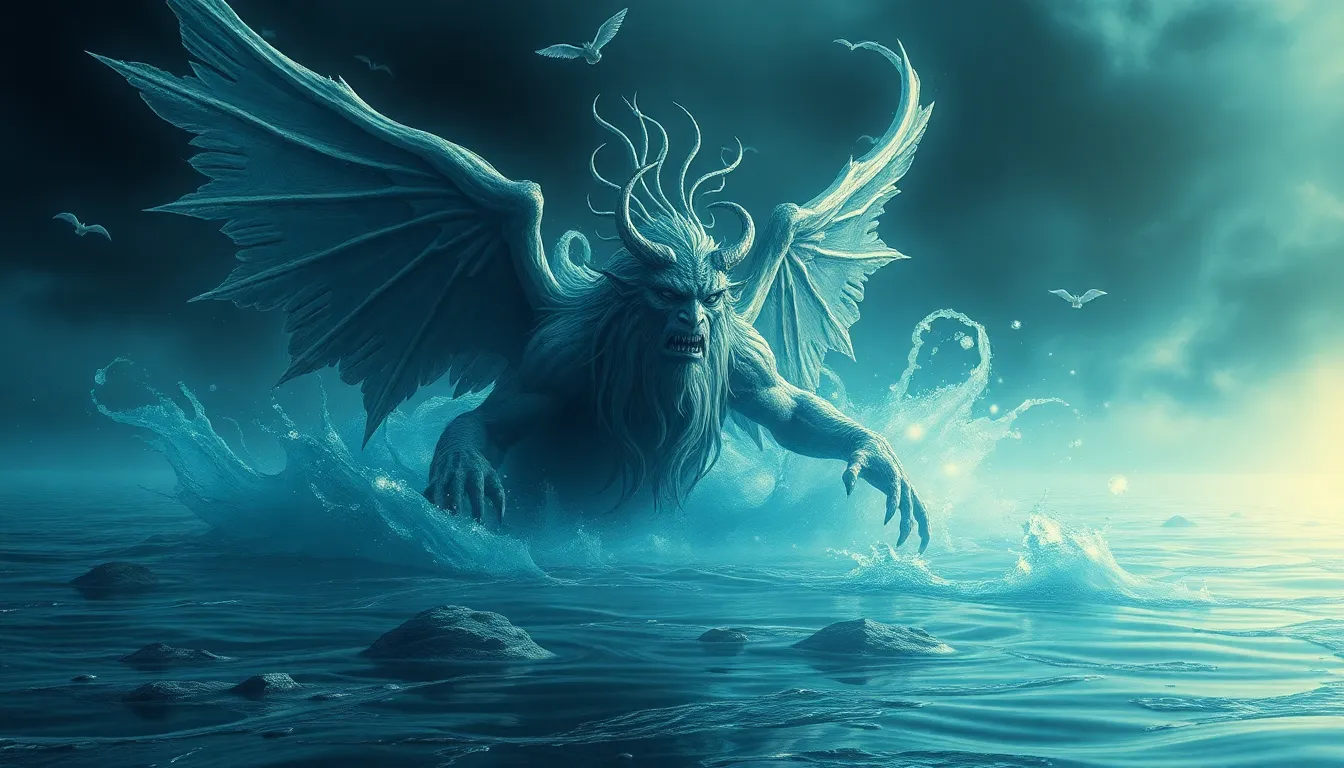Flood Myths and Their Impact on Modern Environmentalism
I. Introduction
Flood myths are narratives found across various cultures that recount stories of great deluges, often featuring a protagonist who survives the catastrophe, usually through divine intervention or personal virtue. These myths are not just tales of destruction; they serve as powerful reflections of humanity’s relationship with nature and the environment.
The significance of flood myths transcends their narrative content, embedding moral lessons and cultural identities within societies. They often symbolize renewal, rebirth, and the moral imperatives that emerge after a crisis. This article explores how ancient flood narratives inform contemporary environmentalism and ecological consciousness, revealing their enduring relevance in an age of climate change.
II. Historical Context of Flood Myths
Major flood myths can be found across diverse cultures, including:
- Noah’s Ark from the Judeo-Christian tradition, where Noah is instructed by God to build an ark to save his family and pairs of every animal species.
- The Epic of Gilgamesh, featuring Utnapishtim, who survives a great flood sent by the gods to wipe out humanity.
- Hindu traditions, which include the tale of Manu, who builds a boat to survive a deluge and repopulates the earth.
These myths share common themes and symbols, such as divine wrath, human failings, survival, and the promise of a new beginning. They often serve as parables about the consequences of human actions and the necessity of living in harmony with nature.
Natural disasters have historically shaped human narratives, provoking reflection on mortality, humility, and the interconnectedness of life.
III. Psychological and Cultural Significance of Flood Myths
Flood myths provide insights into human responses to catastrophe. They allow societies to process trauma and loss, transforming fear and destruction into narratives of hope and survival. Through storytelling, communities maintain their cultural identities and impart moral lessons that resonate through generations.
The psychological impact of floods extends beyond immediate disaster; they can reshape entire communities. Myths serve as coping mechanisms, providing frameworks for understanding and responding to the unpredictability of nature.
IV. Flood Myths and Environmental Awareness
Flood myths highlight humanity’s complex relationship with nature, illustrating themes of respect, caution, and responsibility. These narratives often contain lessons on sustainability and stewardship, emphasizing the necessity of living in balance with the environment.
For instance, the story of Noah emphasizes the importance of preserving biodiversity, while Utnapishtim’s tale stresses the significance of heeding warnings and taking proactive measures to protect life. These ancient narratives foster respect for natural disasters, recognizing them as integral components of the ecological cycle.
V. Modern Environmental Movements Inspired by Flood Myths
Contemporary environmental organizations often reference flood myths in their missions and campaigns. For example:
- The Noah Project, which promotes conservation efforts based on the principles found in the Noah’s Ark story.
- Global Climate Change Initiatives that utilize storytelling to convey the urgency of environmental stewardship, drawing parallels to ancient flood narratives.
These organizations integrate mythological lessons into contemporary activism, reminding the public of the moral imperatives that emerge from ancient tales. Furthermore, flood myths influence public policy related to climate change and disaster preparedness by emphasizing the need for resilience and proactive environmental management.
VI. The Role of Art and Literature in Promoting Environmentalism
Contemporary works of art, literature, and film often draw inspiration from flood myths, using these narratives to communicate urgent environmental messages. Examples include:
- Literature: Novels like “The Overstory” by Richard Powers, which reflect on humanity’s relationship with nature.
- Film: Documentaries that explore climate change through the lens of mythological narratives.
- Visual Art: Installations that depict flood myths and their implications for modern society.
These artistic expressions contribute to the environmental discourse by engaging audiences emotionally and intellectually, enhancing understanding of complex ecological issues.
VII. Critiques of Flood Myths and Their Relevance Today
While flood myths offer valuable insights, they may also oversimplify complex environmental issues. Critics argue that romanticizing the past can lead to a neglect of current scientific understandings of climate change and its multifaceted challenges.
Thus, it is essential to balance mythological narratives with empirical evidence in environmentalism, ensuring that historical lessons inform rather than overshadow scientific knowledge.
VIII. The Intersection of Religion, Myth, and Environmental Ethics
Flood myths often feature prominently in religious teachings, providing ethical implications for environmental stewardship. Different faiths incorporate these narratives to promote care for creation, urging followers to respect and protect the environment.
The potential for interfaith dialogues focused on environmental action is significant. By exploring shared narratives, diverse religious communities can collaborate on initiatives aimed at preserving the planet.
IX. Future Directions: Integrating Myths into Climate Education
Integrating flood myths into environmental education curricula could enhance understanding of ecological issues and inspire future generations. Proposals include:
- Developing interdisciplinary lesson plans that connect mythology, history, and environmental science.
- Creating community-based storytelling projects that engage local narratives alongside global flood myths.
- Encouraging critical discussions on the relevance of ancient stories in addressing modern environmental challenges.
By incorporating these narratives into education, we can foster a deeper ecological consciousness that acknowledges the wisdom of the past while addressing the challenges of the future.




